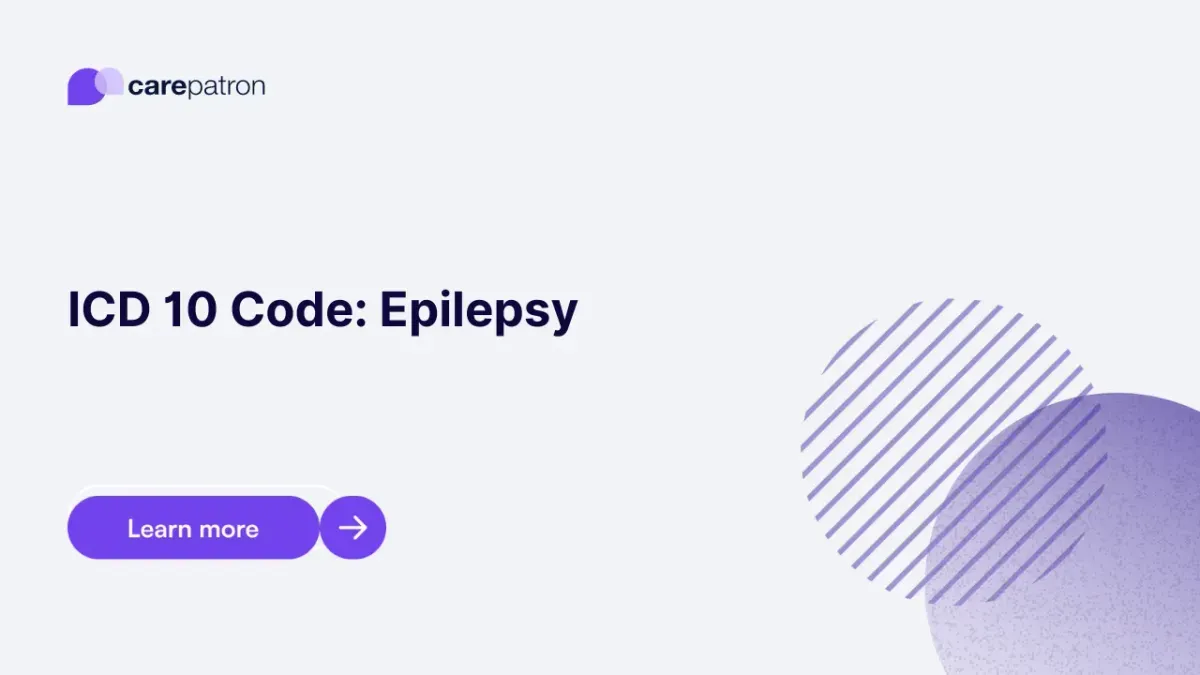
Epilepsy ICD-10-CM Codes
A comprehensive guide to ICD-10-CM codes commonly used for diagnosing and documenting epilepsy in 2025.
Use Code
Commonly asked questions
ICD-10-CM codes for epilepsy should be used in medical documentation for diagnosis, treatment planning, and billing. These codes provide a standardized method for healthcare professionals to identify and categorize epilepsy types and severities.
Common treatments generally involve anti-seizure medications like phenytoin, valproic acid, and lamotrigine. For some intractable cases, surgical procedures like vagus nerve stimulation or resective surgery may be considered.
A diagnosis code for epilepsy identifies the specific form and severity of epilepsy a patient is experiencing. These codes are vital for healthcare providers for standardized diagnosis and treatment planning and are also important for billing and statistical purposes.
EHR and practice management software
Get started for free
*No credit card required
Free
$0/usd
Unlimited clients
Telehealth
1GB of storage
Client portal text
Automated billing and online payments
